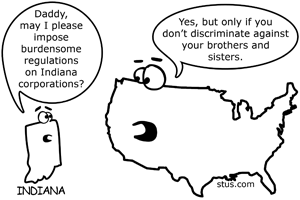Facts: Petitioners contend that Section 14 of Rep. Act No. 9006 discriminates against appointive officials. By the repeal of Section 67, an elective official who runs for office other than the one which he is holding is no longer considered ipso facto resigned therefrom upon filing his certificate of candidacy. Elective officials continue in public office even as they campaign for reelection or election for another elective position. On the other hand, Section 66 has been retained; thus, the limitation on appointive officials remains - they are still considered ipso facto resigned from their offices upon the filing of their certificates of candidacy.
Respondents aver that it does not violate the equal protection clause of the Constitution. Section 67 pertains to elective officials while Section 66 pertains to appointive officials. A substantial distinction exists between these two sets of officials; elective officials occupy their office by virtue of their mandate based upon the popular will, while the appointive officials are not elected by popular will. The latter cannot, therefore, be similarly treated as the former.
Issue: Whether the RA violates the equal protection clause of the Constitution because it repeals Section 67 only of the Omnibus Election Code, leaving intact Section 66 thereof which imposes a similar limitation to appointive officials
Held: No. The equal protection of the law clause in the Constitution is not absolute, but is subject to reasonable classification. If the groupings are characterized by substantial distinctions that make real differences, one class may be treated and regulated differently from the other. The Court has explained the nature of the equal protection guarantee in this manner: The equal protection of the law clause is against undue favor and individual or class privilege, as well as hostile discrimination or the oppression of inequality. It is not intended to prohibit legislation which is limited either in the object to which it is directed or by territory within which it is to operate. It does not demand absolute equality among residents; it merely requires that all persons shall be treated alike, under like circumstances and conditions both as to privileges conferred and liabilities enforced. The equal protection clause is not infringed by legislation which applies only to those persons falling within a specified class, if it applies alike to all persons within such class, and reasonable grounds exist for making a distinction between those who fall within such class and those who do not.

No comments:
Post a Comment